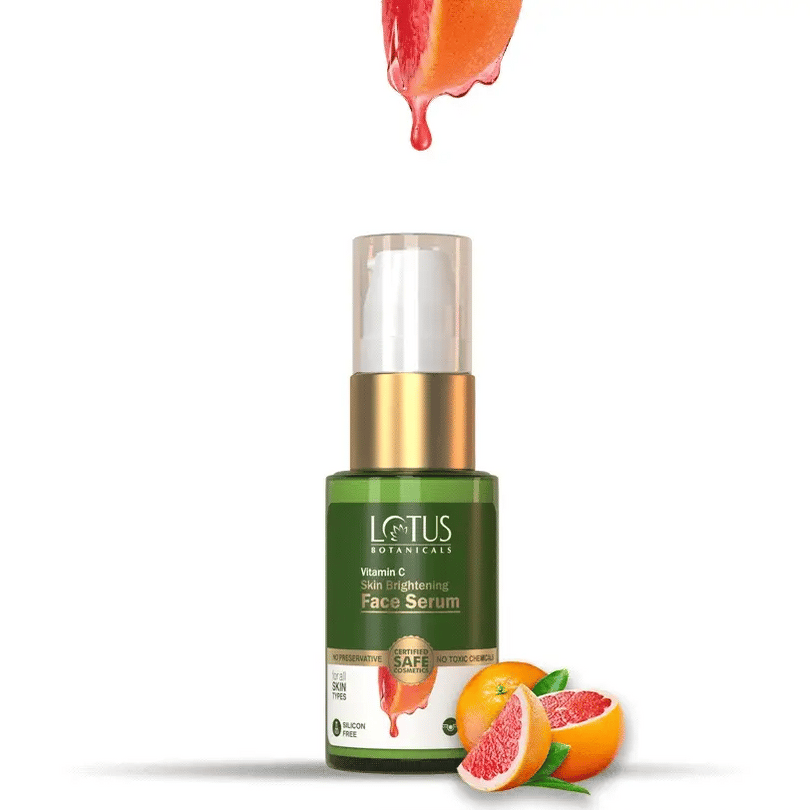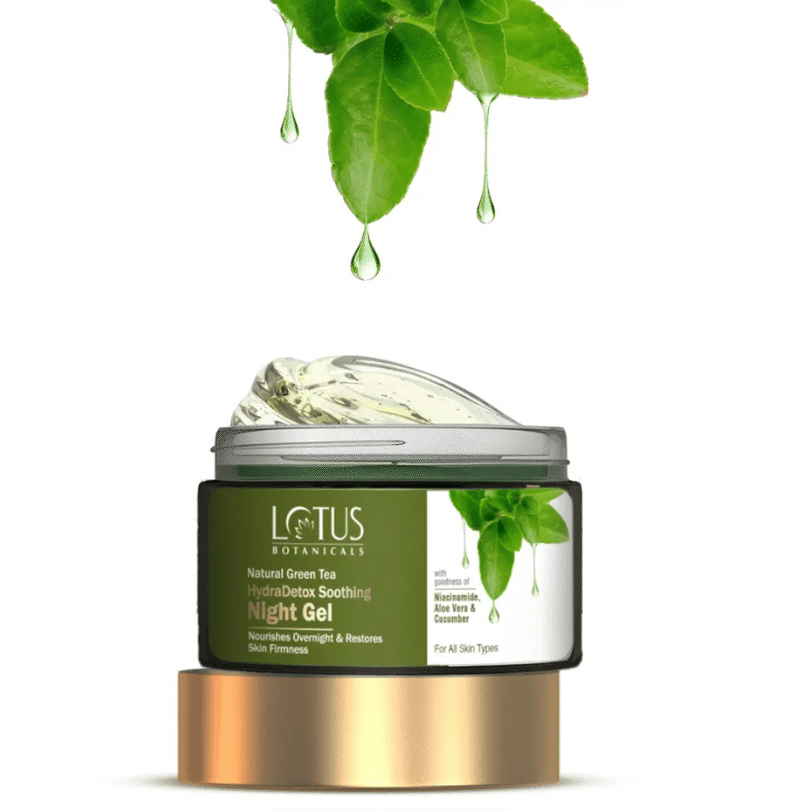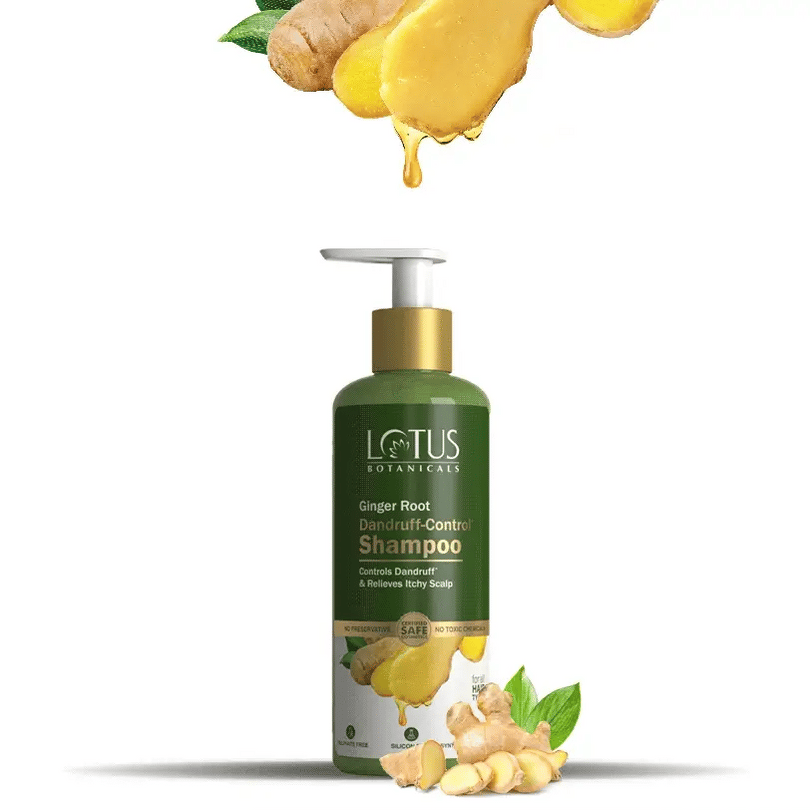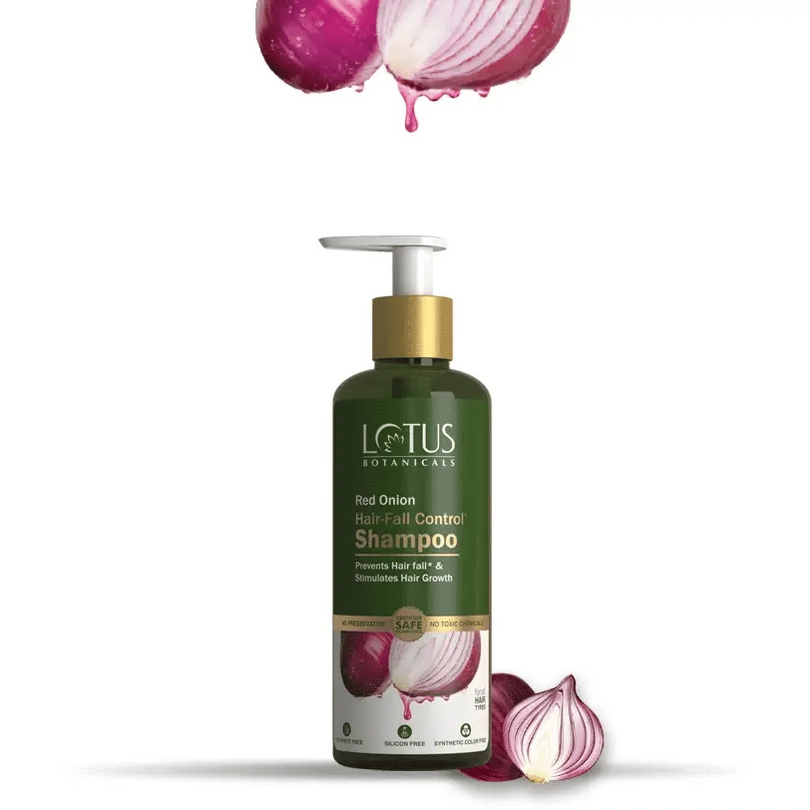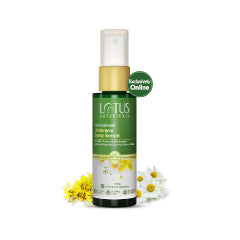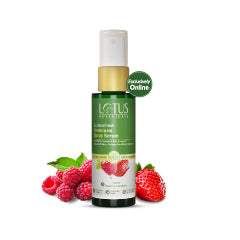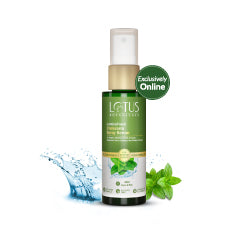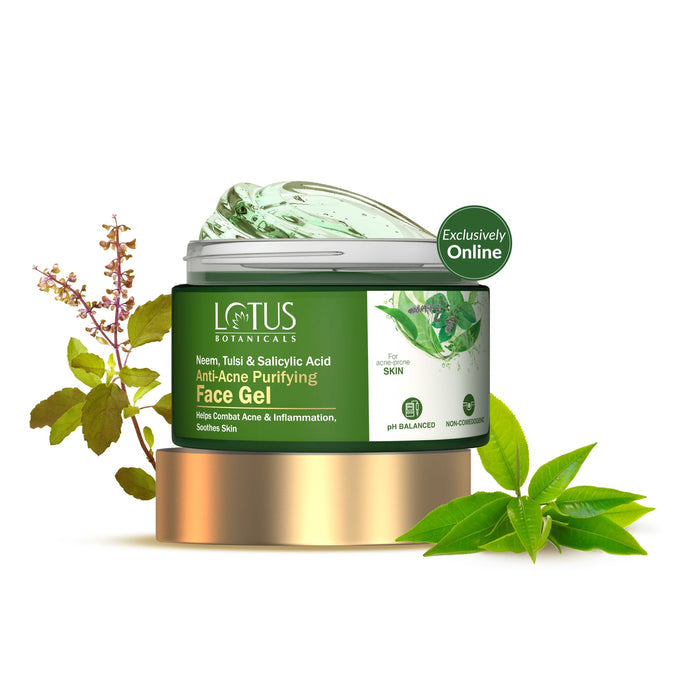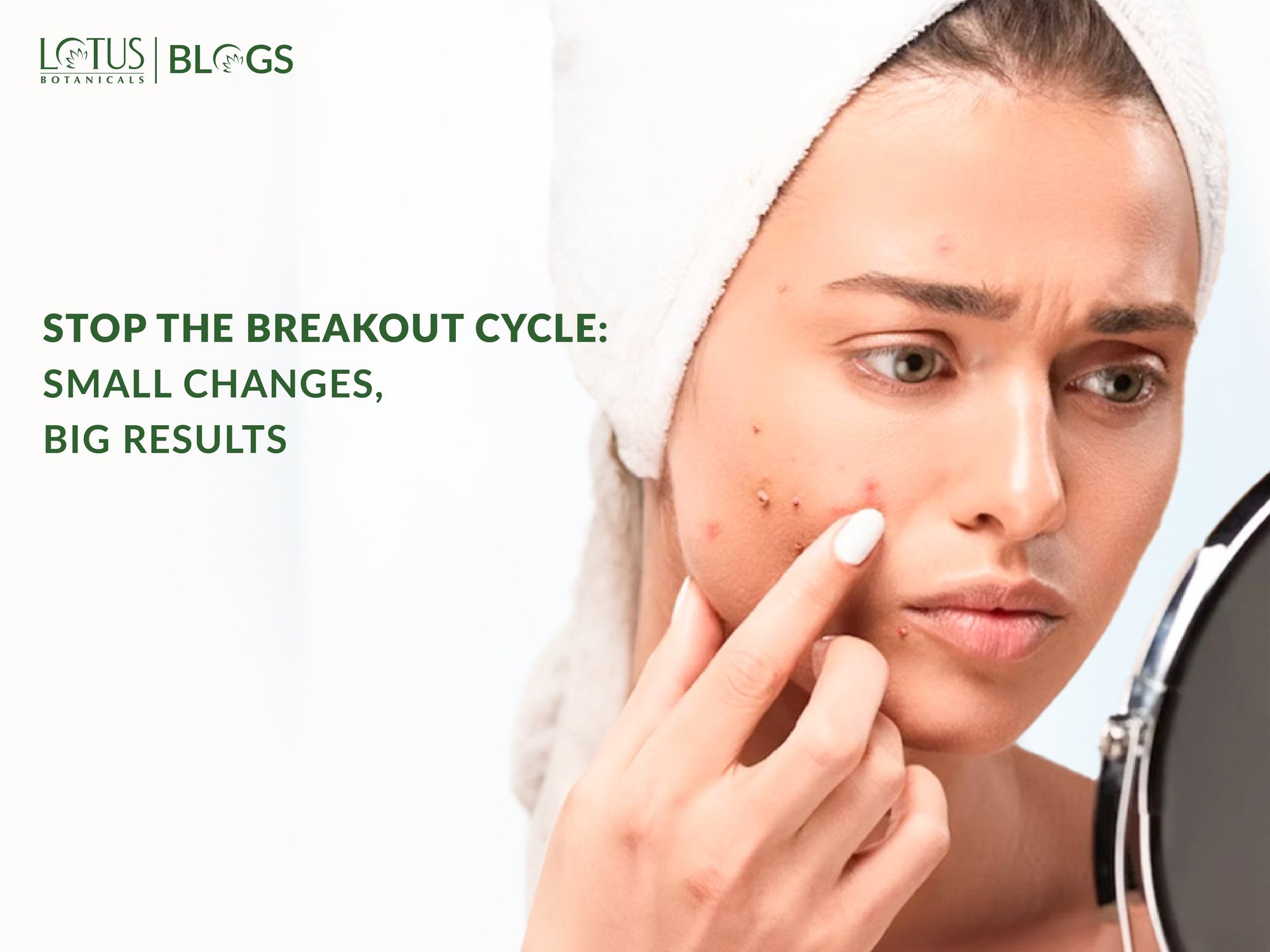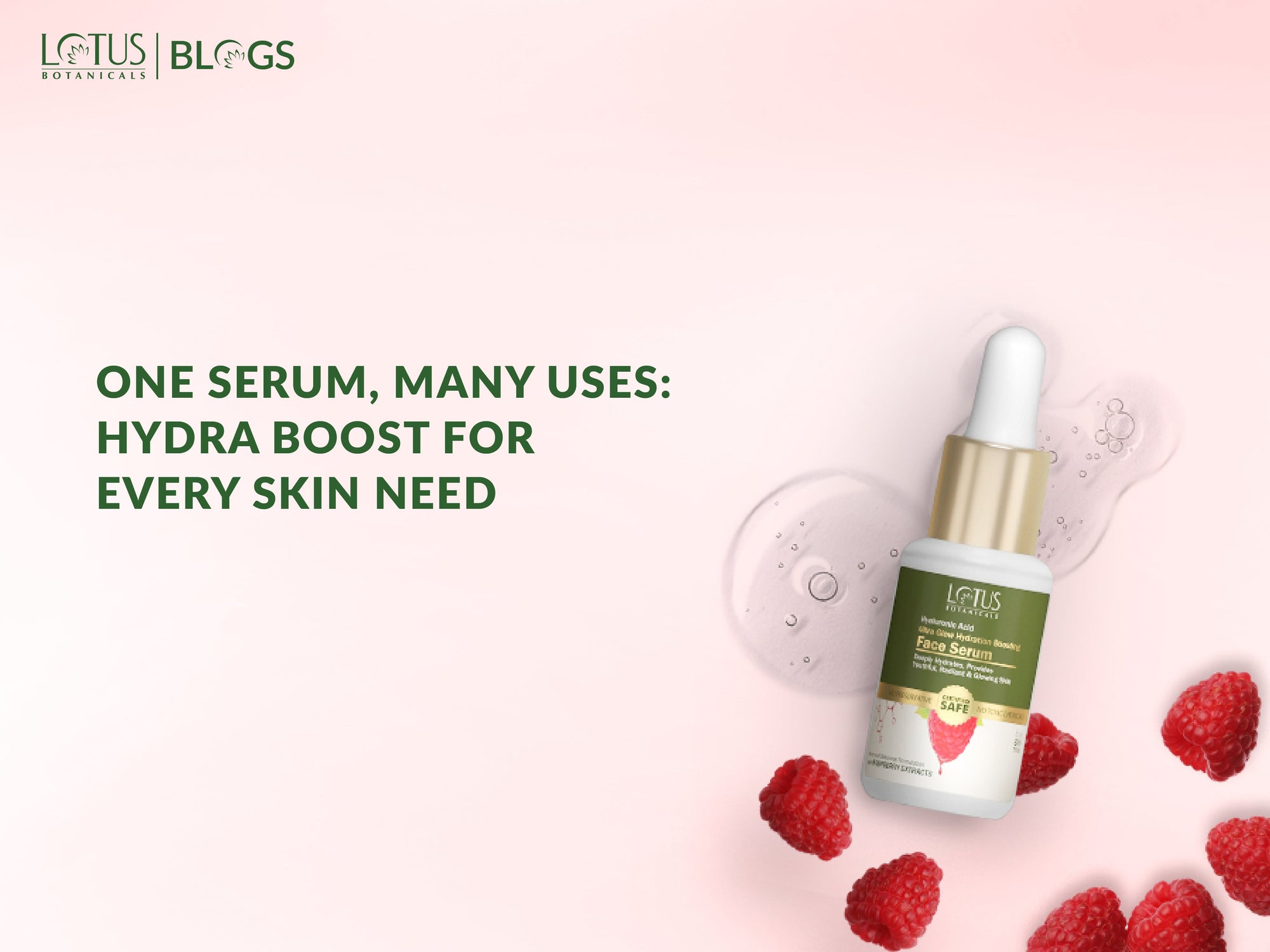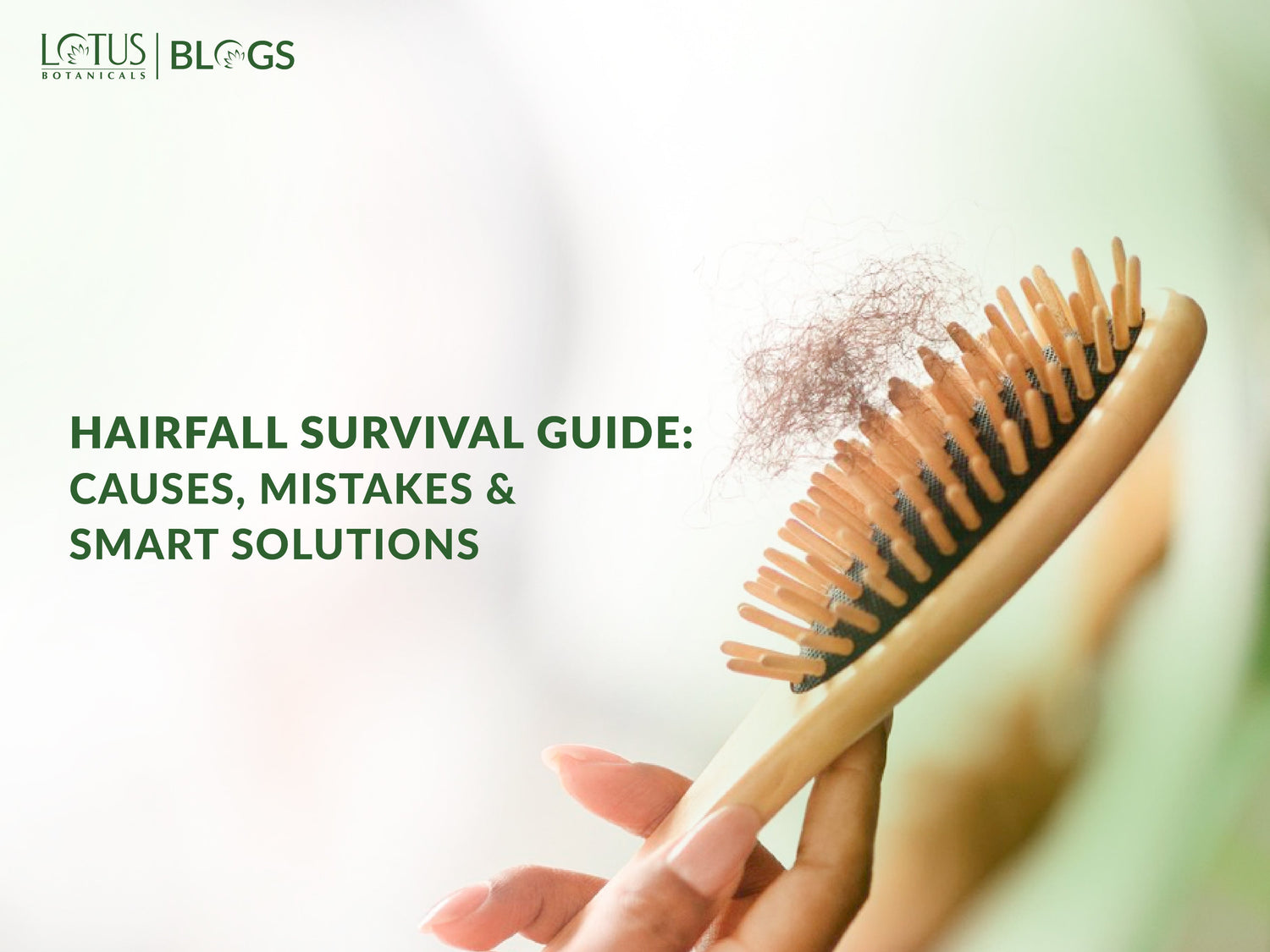
Highlights
-
Common Mistakes You Might Be Making with Hairfall Shampoo
-
Which Hairfall Control Shampoo Actually Works for You?
-
How to Check if a Hairfall Shampoo Suits Your Hair Type
-
Ingredients That Help With Hairfall (And Ones to Skip)
-
Why Does Hairfall Get Worse During Monsoon in India?
-
Simple Routines to Protect Your Hair From Rain and Humidity
-
Can Hairfall Serums Boost Your Results?
-
What Home Remedies Really Help With Hairfall?
-
How Often Should You Use These Remedies for Visible Results?
-
Your Diet and Hairfall: Are You Missing Out on Key Nutrients?
-
Common Diet Mistakes That Can Trigger Hairfall
Ever stare at your shower drain and wonder, "Why am I still losing hair after switching shampoos?" You're not alone. Plenty of people expect magic from hairfall shampoos, only to feel let down after a few weeks. So, what's really happening here?
Before you toss that bottle, let's dig into what's going on—and how to get better results. Plus, if you're a fan of hair care quotes or need some inspiration for your next post, check out these hair care captions for Instagram.
Is it the Shampoo or Something Else Causing Your Hairfall?
Here's the thing: not all hair loss comes from using the wrong shampoo. Your hairfall might be due to:

- Stress (work, relationships, even poor sleep)
- Poor diet (missing key nutrients like iron or protein)
- Hormonal changes (pregnancy, menopause, thyroid issues)
- Medical conditions (like PCOS or alopecia)
- Environmental damage (pollution, sun exposure)
- Over-styling (heat tools, tight ponytails)
Let’s be real—no shampoo can fix stress or a nutritional gap overnight. If you suspect something bigger is causing your hairfall, you might want to see a dermatologist.
Research shows up to 40% of women experience visible hair loss by age 40. It’s not always about your shampoo!
Common Mistakes You Might Be Making with Hairfall Shampoo
You bought the right shampoo, but your hair's still falling out? Here are some mistakes people often make:

- Not giving it enough time: Hair cycles take months. Expect results in 8-12 weeks—not days.
- Using too much product: Overwashing can strip natural oils and make things worse.
- Skipping conditioner: Conditioner helps protect and strengthen strands.
- Mismatching ingredients: Not every formula suits every scalp. Check for harsh chemicals or allergens.
- Ignoring scalp health: Dirty scalp equals unhappy follicles. Scrub gently but thoroughly.
|
Mistake |
What Happens |
Quick Fix |
|
Switching shampoos too often |
Your scalp never adjusts |
Stick to one brand for 2-3 months |
|
No scalp massage |
Poor blood circulation |
Massage gently for 2 minutes daily |
|
Using hot water |
Weakens roots and dries scalp |
Use lukewarm water instead |
If you want more expert advice about split ends and scalp care, check out this helpful guide: How to repair and prevent split ends.
Your Go-To Place for Haircare Solutions: Lotus Botanicals
If you're ready to try something new or just want reliable info, head over to Lotus Botanicals. You'll find everything from shampoos and conditioners to expert blogs about keeping your hair healthy.
Q: How long does it take for hairfall shampoo to show results?
A: Most people see changes after 8-12 weeks. Patience is key!
Q: Can stress really cause hair loss even if I use good shampoo?
A: Yes! Stress can trigger shedding no matter how great your shampoo is.
Q: Should I change my shampoo if it’s not working?
A: Give it at least two months before switching. Sometimes other factors are causing the problem.
Which Hairfall Control Shampoo Actually Works for You?
Ever stood in the shampoo aisle, totally confused? You're not alone. With so many hairfall control shampoos out there, it’s tough to know what really works for your hair.
Here’s the thing: what works for your friend might not work for you. Your hair type, scalp health, and even your daily routine matter. So, how do you find the right shampoo that actually controls hairfall?
- Start by understanding your hair type
- Check the ingredients—some help, some harm
- Test and observe results over a few weeks
- Don’t fall for fancy labels alone
“On average, it’s normal to lose about 50–100 hairs a day. More than that, and you should take action.” – Trichologist Dr. Mehta
If you want more tips on healthy hair routines or split ends, check out these expert guides: How to Repair and Prevent Split Ends: Expert Advice.
How to Check if a Hairfall Shampoo Suits Your Hair Type
Your hair isn’t like anyone else’s. Thick, thin, curly, straight—each needs something different. So, how do you know if a shampoo is right for you?

- Read the label: Look for shampoos made for your hair type—dry, oily, colored, or sensitive.
- Test it out: Use the shampoo for at least two weeks. Notice any changes in texture, scalp comfort, or hair loss.
- Watch out for reactions: If you notice itching, dryness, or more hair fall than usual, stop using it.
- Check reviews: Real people share their experiences online. Look for folks with similar hair issues.
- Ask a pro: A dermatologist or trichologist can guide you if nothing seems to work.
|
Signs a Shampoo Suits Your Hair Type |
|
|
Sign |
Good Match? |
|
No scalp irritation |
Yes |
|
Softer texture after wash |
Yes |
|
Less breakage while combing |
Yes |
|
Increased shedding after use |
No |
|
Dullness or roughness |
No |
If you’re a swimmer or deal with pool chemicals often, don’t miss these practical tips: Swimming Haircare Tips: Protect Your Hair From Chlorine and Saltwater Damage.
Ingredients That Help With Hairfall (And Ones to Skip)
This part is super important! Some ingredients really do help with hairfall. Others? They can make things worse.

- Red Onion Extract: Boosts blood circulation in the scalp. Supports new growth. See more about this ingredient in our article: Red Onion—Food For Your Hair and Scalp.
- Bhringraj & Amla: Ancient remedies that strengthen roots and reduce shedding.
- Caffeine: Can stimulate follicles and improve thickness over time.
- Aloe Vera & Green Tea: Calm inflammation. Prevent scalp stress that leads to hair loss.
- No Parabens or Sulphates: These harsh chemicals strip natural oils and can cause more breakage. Learn why paraben-free matters here: Why You Should Use Paraben-Free Products.
- No Alcohols or Artificial Fragrances: Can dry out your scalp and make things worse.
“Switching to natural ingredients isn’t just trendy—it can seriously lower your risk of chronic hairfall.” — Lotus Botanicals R&D Team
If you love skin and hair quotes for inspiration (and Instagram!), browse these: 65 Hair Care Quotes & Captions For Instagram.
Your Go-To Place for Safe Haircare: Lotus Botanicals
If you're tired of guessing which products are safe or effective, check out Lotus Botanicals' full range of clean beauty products: Lotus Botanicals Official Website. All formulas are paraben-free and focused on real results. Plus, their blog covers everything from skin to scalp care.
Q: How long should I use a shampoo before judging results?
A: Give it at least two weeks. Some effects show up early; others need a month to notice real change.
Q: Are natural ingredients always better?
A: Not always! Some natural ingredients can irritate sensitive scalps. Patch test before regular use.
Q: Can changing shampoos stop hairfall completely?
A: Not always. Sometimes diet, stress, or health issues play a big role. Shampoos help but aren’t magic fixes.
Dealing With Hairfall in Monsoon? Here’s What You Can Do
Ever noticed your hair shedding more during the rainy season? You're not alone! Almost everyone faces this problem, especially in India. It's frustrating, isn't it? But the good news is, you can do something about it.
Why Does Hairfall Get Worse During Monsoon in India?
Let's break it down. You might think, "It's just rain—how can it mess with my hair?" Here's the thing: monsoon brings a mix of humidity, sudden temperature changes, and even pollution. All these factors hit your scalp and hair hard.

- Humidity: Makes your scalp sweaty and attracts dirt, leading to blocked follicles.
- Rainwater: It's often acidic and contains pollutants. If you get wet often, your scalp gets irritated.
- Dampness: Wet hair stays damp longer, which can cause fungal infections or dandruff.
- Diet Changes: Comfort food cravings in monsoon sometimes mean skipping nutrients your hair needs.
"Monsoon humidity increases scalp infections by up to 30%, making hairfall more common." — Trichologist Dr. Neha Sharma
Real talk: Have you ever rushed out in the rain without an umbrella? Even one wet commute can leave your scalp itchy for days. It's not just you—it's a seasonal struggle! If you want some motivational hair care quotes for rainy days, check out these hair care quotes for Instagram.
Simple Routines to Protect Your Hair From Rain and Humidity
So what actually works when rain is pouring every other day? Here are practical routines that can make a real difference:

- Keep Your Scalp Clean: Use a mild shampoo two or three times a week. Don't let sweat and grime build up.
- Avoid Getting Hair Wet in Rain: Carry a scarf or umbrella. If you do get soaked, wash your hair as soon as possible.
- Ditch Heavy Oils: Try lighter oils (like argan or almond) instead of sticky coconut oil during monsoon.
- Dry Your Hair Properly: Don't tie wet hair. Let it air dry completely before styling or heading out.
- Nourish from Within: Eat fresh fruits and protein-rich foods. Hydration is key—drink lots of water!
- Treat Dandruff Early: At the first sign of flakes or itchiness, use anti-dandruff products. Here's an expert guide on treating dandruff naturally.
|
Problem |
Quick Fix |
|
Damp scalp after rain |
Towel dry + gentle shampoo |
|
Sudden hairfall spike |
Nutrient-rich meals + scalp massage |
|
Dandruff outbreak |
Anti-dandruff shampoo twice a week |
|
Frizzy texture |
Leave-in conditioner or serum |
If you're looking for more tips on split ends and healthy hair during monsoon, check out our expert advice on split ends repair and prevention.
Your Go-To Source for Natural Hair Solutions: Lotus Botanicals
If you want plant-powered products that actually work for monsoon hair issues, head over to Lotus Botanicals. You'll find everything from gentle shampoos to nourishing serums designed for Indian weather. Plus, there's a BOGO offer running right now!
Q: How often should I wash my hair during monsoon?
A: Two to three times a week is ideal. More if your scalp feels oily or dirty.
Q: What type of shampoo is best for rainy season?
A: Go for gentle, sulphate-free options that clean without stripping natural oils.
Q: Can diet really help reduce hairfall in monsoon?
A: Absolutely! Eating fresh veggies, eggs, nuts, and drinking enough water supports stronger hair growth.
Can Hairfall Serums Boost Your Results?
Ever feel like your shampoo alone isn't stopping your hair from falling out? You're not alone. Lots of people wonder if adding a hairfall serum can really make a difference. Here's the thing: the right serum can boost your results, but only if you use it correctly and choose wisely.
If you're curious about pairing haircare products, check out these hair care tips that are trending right now.
How to Use Hairfall Serum with Your Shampoo for Best Results
Want stronger, healthier hair? It starts with a good routine. Pairing your shampoo and hairfall serum the right way can give you better results.

- Wash your hair with a gentle shampoo. Avoid harsh cleansers that dry out your scalp.
- Towel dry until damp. Your scalp should be slightly moist, not dripping wet.
- Apply the serum directly to your scalp. Focus on areas where you notice more hair fall.
- Massage gently for 2-3 minutes. This boosts blood circulation and helps the serum absorb better.
- Don’t rinse out the serum. Let it work overnight or throughout the day.
Consistency is key. Using serum every night or after each wash gives your hair the best chance to strengthen and grow. People often see visible improvement in 4-6 weeks—less hair on your pillow and in your shower drain!
"Applying serum after shampooing helps nutrients reach the roots faster. Massage boosts absorption and encourages new growth." – Trichologist Dr. Neha Singh
- Never mix serums with shampoos; apply them separately for full effect.
- If you style or heat-treat often, use serum as a protective barrier.
- Pairing with an anti-hairfall shampoo can double the benefit for weak strands.
If split ends are also a problem, here’s some expert advice on how to prevent them: split ends repair tips.
What to Look For in a Hairfall Serum Before You Buy
The truth is, not all serums work for everyone. So what should you look for before picking one off the shelf?
|
Ingredient |
Why It Helps |
Who Should Use It? |
|
Red Onion Extract |
Boosts collagen & reduces breakage |
If you have thinning hair or weak roots |
|
Caffeine |
Improves scalp circulation |
If you want faster hair growth |
|
Bhringraj Oil |
Nourishes follicles deeply |
If your scalp feels dry or itchy |
|
Amla Extract |
Packed with vitamin C for shine & strength |
If dullness or lack of volume bothers you |
|
No Parabens/Silicones |
Keeps scalp healthy long-term |
For sensitive skin or frequent users |
- Always check for natural ingredients like onion, amla, or bhringraj oil.
- Avoid parabens and silicones—they can clog pores and slow down growth.
- If you’re unsure, look up user reviews or try travel-size bottles first.
- A dermatologist-approved formula is usually safer for sensitive scalps.
If you want to learn why paraben-free matters, read this guide: Paraben-Free Products Explained.
Why Shop at Lotus Botanicals?
If you're searching for reliable hairfall serums, it's smart to choose brands that focus on natural, safe ingredients. At Lotus Botanicals, you'll find products packed with nature’s best—no harsh chemicals or fillers. Plus, their blog has tons of practical advice for real people just like you. Explore their collections here: Lotus Botanicals Official Site.
Q: How long does it take to see results from a hairfall serum?
A: Most people notice less hair fall after four to six weeks of regular use.
Q: Can I use hairfall serum every day?
A: Yes! Daily use is safe for most serums—just follow the instructions on your bottle.
Q: Will using both shampoo and serum make my hair greasy?
A: Not if you apply serum only on your scalp and choose lightweight formulas. Always avoid heavy oils if you have oily skin.
What Home Remedies Really Help With Hairfall?
Ever stood in the shower, watching clumps of hair swirl down the drain and wondered, "Is there anything at home that can actually help?" You're not alone. Hair fall is frustrating, but here's the thing—your kitchen might be hiding some answers.
If you're looking for simple ways to tackle hair fall without expensive treatments, let's dive into what really works. We'll break down easy kitchen remedies and how often you should use them for results you'll notice.
And if you love reading hair care quotes or want inspiration for your next Instagram post, check out these hair care quotes and captions. Sometimes, a little encouragement goes a long way on your hair journey!
Easy Kitchen Ingredients for Hair Fall Remedies
Ready to start with stuff you already have? Here's what you should try:
- Coconut Oil: Massage warm coconut oil into your scalp. It improves blood flow and strengthens hair roots.
- Onion Juice: Yes, it smells—but onion juice is packed with sulfur. Apply it to your scalp, leave for 30 minutes, then rinse well.
- Aloe Vera: Scoop out fresh gel from an aloe leaf and massage it onto your scalp. Aloe calms irritation and helps with growth.
- Fenugreek Seeds (Methi): Soak overnight, grind into paste, and apply. Fenugreek fights dandruff and boosts follicles.
- Egg Mask: Mix egg yolk with olive oil. Apply this mask once a week for protein-rich nourishment.
- Curry Leaves: Boil with coconut oil and use as a scalp treatment. Curry leaves are known to prevent thinning.
"A study published in the Journal of Dermatology found that onion juice applied twice weekly led to noticeable regrowth in some people within six weeks."
|
Ingredient |
Main Benefit |
How to Use |
|
Coconut Oil |
Nourishes & strengthens roots |
Massage & leave overnight |
|
Onion Juice |
Promotes regrowth |
Apply for 30 mins, wash off |
|
Aloe Vera |
Soothe scalp & reduce hair fall |
Apply gel, leave for 1 hour |
|
Fenugreek Paste |
Strengthens follicles |
Apply paste, rinse after 45 mins |
|
Egg Mask |
Adds protein & shine |
Apply weekly, wash after 20 mins |
You don't need fancy products to get started. These remedies are time-tested and can be mixed and matched based on what suits your hair best. For even more kitchen inspiration, discover how red onion benefits your scalp in this detailed guide: Red Onion: Food For Your Hair And Scalp.
How Often Should You Use These Remedies for Visible Results?
This is a big question: How often should you actually do this stuff? The truth is, consistency matters more than anything else.
- Coconut Oil: Try twice a week for best results.
- Aloe Vera Gel: Once or twice a week is enough.
- Onion Juice: Twice a week max—don't overdo it or your scalp may get irritated.
- Fenugreek Paste: Once weekly works well.
- Egg Mask: Stick to once every week (especially if you have oily scalp).
If you use these remedies regularly for at least a month, most people start seeing less hair fall and healthier strands. But wait—don't expect overnight miracles! Natural remedies take time because they work gently.
"Most home remedies need at least four weeks of regular use before you notice visible changes."
If you combine these kitchen treatments with gentle washing and avoiding harsh chemicals (like sulfates or parabens), you'll give your hair the best shot at recovery. Want to know why going paraben-free matters? Read more here: Why You Should Use Paraben-Free Products.
Your Go-To Resource: Lotus Botanicals Website
If you're searching for clean beauty tips or want to shop safe hair care products online, visit the official Lotus Botanicals website. It's packed with expert advice, product recommendations, and exclusive offers that can help you upgrade your hair routine naturally.
Q: Can I use more than one remedy at the same time?
A: Yes! You can mix remedies like coconut oil and aloe vera—but space them out so your scalp doesn't get overwhelmed.
Q: How do I know which remedy is best for my hair type?
A: Start with one remedy at a time. If your scalp feels good (no itching or redness), keep going! Switch if needed.
Q: Are these remedies safe for colored or treated hair?
A: Most are gentle. Always do a patch test first to make sure there's no reaction on treated hair.
If you're curious about more ways to protect your hair from damage (like swimming or heat), check out this guide: Swimming Haircare Tips: Protect Your Hair From Chlorine And Saltwater Damage. Your healthy hair journey starts at home!
Your Diet and Hairfall: Are You Missing Out on Key Nutrients?
Ever looked at your hairbrush and wondered, "Why am I shedding so much hair?" You're not alone. The truth is, what you eat every day plays a huge role in your hair health. If your diet is missing some key nutrients, you might notice more strands in the drain than you'd like. Let's talk about how your plate affects your ponytail—and what you can do about it.
By the way, if you love sharing beauty tips or need inspiration for your next Instagram post, check out these hair care quotes.
Foods That Support Hair Growth and Reduce Hairfall
Here's the thing: Your hair needs a steady supply of nutrients to grow strong and stay put. Some foods are like super-fuel for your scalp. Want to see real results? Try adding these to your meals:

- Eggs: Packed with biotin and protein—two essentials for hair strength.
- Spinach: Full of iron, folate, and vitamins A and C. These help keep your scalp healthy.
- Nuts & Seeds: Almonds, walnuts, chia seeds—rich in vitamin E and omega-3 fatty acids.
- Sweet Potatoes: High in beta-carotene which helps produce sebum (your scalp’s natural oil).
- Lentils & Beans: Great plant proteins plus zinc to help with growth and repair.
- Fatty Fish: Salmon, mackerel, sardines—loaded with omega-3s for shine and strength.
- Berries: Vitamin C boosts collagen production, which supports hair structure.
Did you know? Iron deficiency is one of the most common reasons for hair loss in women. If you’re skipping greens or red meat, it’s time to rethink!
If you're curious about natural ways to care for your hair, especially ingredients like red onion or ginger, check out this guide on red onion food for your hair.
Common Diet Mistakes That Can Trigger Hairfall
You might be eating enough calories—but are you getting enough of the right nutrients? Here’s where things often go wrong:
- Crash Dieting: Quick weight loss can shock your system. Your body stops sending nutrients to "non-essential" areas like hair.
- Skipping Protein: Hair is made of keratin (a protein). Not enough protein = weak, thin hair.
- Low Iron Intake: Feeling tired and losing hair? It could be low iron. Women are especially at risk.
- Ditching Healthy Fats: No-fat diets can dry out your scalp and make hair brittle.
- Sugar Overload: Too much sugar messes with hormone balance—sometimes leading to thinning strands.
- Lack of Variety: Eating the same thing daily means you might miss vital vitamins and minerals.
|
Nutrient Deficiency & Hairfall Connection |
||
|
Nutrient |
Main Food Sources |
Hairfall Risk When Deficient |
|
Iron |
Spinach, lentils, red meat |
Anemia-related hair loss |
|
Biotin |
Eggs, nuts, whole grains |
Brittle hair, thinning |
|
Zinc |
Pumpkin seeds, beans |
Poor growth & repair |
|
Vitamin D |
Dairy, sunlight exposure |
Poor follicle function |
|
Protein |
Poultry, tofu, dairy |
Brittle texture & breakage |
The bottom line? If you notice more hair in the shower or on your pillow lately, it's time to look at your diet first. Try swapping chips for nuts or add an extra egg to breakfast. Small changes can make a big difference!
Your One-Stop Shop for Natural Hair Solutions: Lotus Botanicals
If you're searching for reliable products that support healthy hair from the outside in, you should visit the official site of Lotus Botanicals: Here's their homepage: Lotus Botanicals Official Website. You'll find natural shampoos, conditioners, and expert tips on their blog. Plus, check out their current offers on quality products.
If you want advice on repairing split ends or preventing further damage after fixing your diet, read this expert guide: "How to Repair and Prevent Split Ends: Expert Advice".
Q: Can poor nutrition really cause noticeable hairfall?
A: Yes! Lack of key nutrients like iron or protein can trigger excessive shedding and slow regrowth.
Q: How long does it take for dietary changes to show results in my hair?
A: Usually you'll see improvement within three months if you stick with nutrient-rich foods every day.
Q: Should I take supplements or just focus on food?
A: Food first! Supplements help if you’re truly deficient—always consult a doctor before starting anything new.
Stress and Hairfall: How You Can Break the Cycle
Ever notice more hair on your pillow after a rough week? You're not alone. Stress and hairfall go hand in hand, but you can break the cycle. Let's talk about why this happens—and what you can do to stop it.
Ways Stress Leads to Hairfall and What You Can Do
Here's the thing: stress messes with your body in ways you might not expect. One major way is through your hair. When you're stressed, your body releases hormones that can push hair follicles into a "resting" phase. That means less growth, more fallout.
Did you know? Experts say up to 70% of sudden hair loss cases are triggered by stress.
- Telogen effluvium: This is the most common type of stress-induced hair loss. Your hair shifts from growing to shedding mode.
- Alopecia areata: Sometimes stress confuses your immune system, causing patchy hair loss.
- Trichotillomania: Some people pull out their own hair when they're anxious or stressed.
So, what can you do? You don't have to just accept it. Here are some simple steps you can try today:
- Nourish your scalp: Use gentle, natural products like onion oil or herbal shampoos. Check out these onion hair care tips.
- Eat well: Add more protein, iron, and vitamins to your meals. Your hair loves leafy greens and nuts!
- Avoid harsh chemicals: Stay away from chemical treatments while you're stressed. Go for paraben-free products—here's why that's important: paraben-free explained.
- Treat your hair gently: Don't tug or pull when brushing. Use a wide-tooth comb and pat dry instead of rubbing.
- See a doctor if needed: If you're losing lots of hair, talk to a specialist. Sometimes it's more than just stress.
|
Type of Stress-Related Hair Loss |
Main Cause |
Signs to Watch For |
|
Telogen Effluvium |
Sustained mental/emotional stress |
Diffuse shedding all over scalp |
|
Alopecia Areata |
Autoimmune response from high stress |
Patches or spots without hair |
|
Trichotillomania |
Anxiety-driven behavior |
Bald patches where hair is pulled out |
If you want more quick inspiration for taking care of your locks, check out these creative ideas: hair care quotes for Instagram.
Quick Relaxation Tips to Help Your Hair and Your Mind
You can't control everything, but you can find ways to relax—even on busy days. Less stress means happier hair (and a better mood!). Here's what works best for most people:
- Breathe deeply: Pause and take five slow breaths when you feel overwhelmed.
- Treat yourself to a scalp massage: Just five minutes boosts circulation and eases tension. Try using essential oils or aloe vera gel.
- Meditate or listen to calming music: Even ten minutes a day helps lower stress levels.
- Move your body: Go for a walk, stretch, or dance around your room—whatever gets your blood flowing!
- Create a bedtime routine: Good sleep helps your body recover and boosts hair health.
“Stress management is as important for your scalp as it is for your mind.” — Trichology Expert
If you swim often, chlorine can add extra stress to your scalp. Want tips on protecting your hair from pool damage? Take a look at these helpful swimming haircare tips: Swimming Haircare Tips.
The Lotus Botanicals Website: Your Go-To Resource for Healthy Hair & Skin
If you're serious about breaking the stress-hairfall cycle, it's worth exploring more expert advice and natural products. The Lotus Botanicals website has loads of guides, tips, and plant-based solutions for healthier hair and skin. From nourishing shampoos to soothing serums, you'll find everything you need for self-care routines.
- Browse natural products for healthy hair and skin
- Expert tips on repairing split ends
- Healing skin problems with sandalwood powder
Q: How long does it take for hair to recover after stress?
A: It usually takes three to six months for new growth once stress levels drop.
Q: Can changing my diet help reduce stress-related hairfall?
A: Yes! Eating more protein, iron-rich foods, and leafy greens supports healthier hair growth.
Q: Should I use special shampoos when I'm stressed?
A: Gentle, paraben-free shampoos are best during stressful times—check out this guide on paraben-free choices: Why use paraben-free products?.
Conclusion: What’s Your Next Step for Real Hairfall Results?
Recap: Finding What Works for Your Hairfall
Let's be honest—hairfall is stressful. You notice more strands on your pillow or in the shower and start to worry. The truth is, everyone loses some hair daily. But if you're seeing clumps or thinning spots, it's time to take action.
Here's the thing: there isn't a one-size-fits-all fix. What works for your friend may not work for you. So, how do you figure out what actually helps?
- Track your hairfall pattern—Is it sudden or gradual?
- Check your diet—Are you missing nutrients like iron or protein?
- Review your haircare routine—Are you using gentle, nourishing products? Try switching to paraben-free shampoos (here's why)
- Avoid heat styling and harsh chemicals when possible.
- Don’t forget scalp care! Massaging with oils can boost circulation.
If you’re looking for practical tips on everyday hair care, check out these hair care quotes and captions for inspiration and advice.
"Most adults shed between 50 to 100 hairs a day. More than that could mean something’s up." — Dermatology Journal
Your next step? Start with simple changes and track what improves your hairfall over two months.
When to See a Doctor for Hairfall That Won’t Stop
So you've tried changing products and tweaked your diet, but nothing helps? It's frustrating—and sometimes worrying. When should you get expert help?
- You see bald patches or sudden thinning
- Your scalp feels itchy, sore, or inflamed
- Family history of early balding or medical issues
- No improvement after three months of self-care
- You notice other symptoms like fatigue or weight changes
If any of these sound familiar, book a dermatologist appointment. They might run tests for thyroid, iron levels, or even recommend prescription treatments.
|
Symptom |
Action Needed |
|
Sore scalp + hair loss |
See doctor ASAP |
|
Bald patches |
Specialist consult |
|
No change after home care |
Medical advice recommended |
The Lotus Botanicals Advantage
If you're searching for clean, plant-powered haircare that helps with hairfall, explore the options at Lotus Botanicals. Their range includes paraben-free shampoos, nourishing oils, and targeted solutions for common hair problems.
Want to go deeper on split ends? Here’s an expert guide: How to repair and prevent split ends.
Q: Can I stop hairfall completely?
A: You can reduce excess hairfall, but some daily shedding is normal. Consistent care helps control it.
Q: How long before I see results with new products?
A: Most people see changes after six to eight weeks of regular use. Patience is key!
Q: Are natural ingredients really better?
A: Many people find less irritation and better results with plant-based formulas. Try them and track your progress.
Ready for stronger, healthier hair? Start today—track your progress and don’t hesitate to ask an expert if things don’t improve!
Highlights
-
Common Mistakes You Might Be Making with Hairfall Shampoo
-
Which Hairfall Control Shampoo Actually Works for You?
-
How to Check if a Hairfall Shampoo Suits Your Hair Type
-
Ingredients That Help With Hairfall (And Ones to Skip)
-
Why Does Hairfall Get Worse During Monsoon in India?
-
Simple Routines to Protect Your Hair From Rain and Humidity
-
Can Hairfall Serums Boost Your Results?
-
What Home Remedies Really Help With Hairfall?
-
How Often Should You Use These Remedies for Visible Results?
-
Your Diet and Hairfall: Are You Missing Out on Key Nutrients?
-
Common Diet Mistakes That Can Trigger Hairfall







